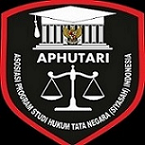Tinjauan Kehalalan Produk Kosmetika dalam Konteks Masailul Fiqhiyah di Era Modern
Abstract
In Islam, the concept of halal and haram is the main foundation that regulates various aspects of life, including the products consumed and used. Halal cosmetics have an important role in the lives of Muslims, especially in maintaining the purity of the body and avoiding the use of materials prohibited in Islam. In this study, researchers used the library research method to examine the review of halal cosmetics in the context of masailul fiqhiyah in the modern era. In the context of cosmetics, a product is said to be halal if it does not contain ingredients that are forbidden according to Islam, such as ingredients derived from blood, pork, or alcohol, and does not cause harm to the user. Cosmetic ingredients such as alcohol, gelatin, synthetic ingredients, and animal-derived products must meet halal criteria in accordance with Islamic law. In addition, the purpose of using cosmetics must also maintain a balance between aesthetic needs and morality in Islam, avoiding vanity and extravagance. The views on halal cosmetics differ among the madhhabs. The Hanafi school is more flexible, allowing synthetic ingredients and non-khamr alcohol if they are not unclean. The Maliki and Hanbali schools are stricter, rejecting unclean ingredients, alcohol, or non-halal slaughtered animals, and prohibiting contamination with haram ingredients. The Shafi'i school emphasizes cleanliness and ensures that all materials and processes are free from haram or unclean elements. The findings show that the halalness of cosmetic products is not only determined by the raw materials used, but also the production process, packaging, and distribution. Halal certification bodies need to improve supervision and consistency in the implementation of halal standards, especially on imported raw materials and internationally marketed products. Muslim consumers are also expected to be more critical in choosing products by checking halal certification and understanding the composition of the ingredients used.
Keywords
Full Text:
PDFReferences
a. Sumber Buku
Rahmi, Maisyarah, ‘Maqasid Syariah Sertifikasi Halal’, Bening Media Publishing, 2021, pp. 1–174 <https://www.google.co.id/books/edition/Maqasid_Syariah_Sertifikasi_Halal/ezqoEAAAQBAJ?hl=en&gbpv=0>
b. Sumber Jurnal
Adjeng, Andi Nafisah Tendri, Yuni Aryani Koedoes, Nur Fitriana Muhammad Ali, Afna Nur Afni Palogan, and Ervina Damayanti, ‘Edukasi Bahan Dan Penggunaan Kosmetik Yang Aman Di Desa Suka Banjar Gedong Tataan Kabupaten Pesawaran’, Jurnal Kreativitas Pengabdian Kepada Masyarakat (PKM), 6.1 (2023), pp. 89–102, doi:10.33024/jkpm.v6i1.8041
Aeni, Nur, and Maya Tri Lestari, ‘Pengaruh Label Halal, Citra Merek Dan Harga Terhadap Keputusan Pembelian Produk Kosmetik Wardah’, Jurnal Ekonomi Bisnis, Manajemen Dan Akuntansi (JEBMA), 1.2 (2021), pp. 117–26, doi:10.47709/jebma.v1i2.996
Alifia Ikhtiyarini, Tita, and Subhan Rullyansyah, ‘Hukum Kehalalan Produk Obat Dan Kosmetik Yang Beredar Halal Law for Circulating Medicinal and Cosmetic Products’, Camellia, 1.1 (2022), pp. 27–30
Arsita, Dian W, and Zahrotul Jannah, ‘Persepsi Mahasiswa Mengenai Produk Kosmetik Halal (Studi Kasus Mahasiswa Fakultas Syariah IAIN Kudus)’, SYARIAH: E-Proceeding of Islamic Law, 2.2 (2023), p. 73
AYATINA, SAYMA, KEWENANGAN BADAN PENYELENGGARA JAMINAN PRODUK HALAL DAN MAJELIS ULAMA INDONESIA DALAM SERTIFIKASI PRODUK HALAL BERDASARKAN UNDANG-UNDANG NOMOR 33 TAHUN 2014 PERSPEKTIF FIQH SIYASAH, Nucl. Phys., 2023, xiii
Darmalaksana, Wahyudin, and Busro Busro, ‘Kosmetik Halal Sebagai Lifestyle Untuk Kesehatan: Studi Takhrij Dan Syarah Hadis’, Al-Tadabbur: Jurnal Ilmu Al-Qur’an Dan Tafsir, 6.2 (2021), pp. 217–30, doi:10.30868/at.v6i02.1634
Herianti, Herianti, Siradjuddin Siradjuddin, and Ahmad Efendi, ‘Industri Halal Dari Perspektif Potensi Dan Perkembangannya Di Indonesia’, Indonesia Journal of Halal, 6.2 (2023), pp. 56–64, doi:10.14710/halal.v6i2.19249
Isnan Ansory, ‘Status Hukum Alkohol Perspektif Tafsir Ahkam’, Jurnal Ruhul Islam, 1.1 (2023), pp. 18–41, doi:10.33476/jri.v1i1.111
Khadijatul, Ade, Marliyah, Tuti Anggraini, and Rahmat, ‘Peranan Perspektif Maqashid Al Syariah Dan Berlakunya Undang-Undang Nomor 33 Tahun 2014 Tentang Jaminan Produk Halal Terhadap Produk Kosmetik Halal Di Panyabungan Kabupaten Mandailing Natal’, Jurnal Syarikah, 8.2 (2022), pp. 297–311
Lubis, Azwani, Heri Firmansyah, and Nazlyany Hasibuan, ‘Kesadaran Hukum Penggunaan Kosmetika Halal Fakultas Syariah Dan Hukum Uinsu Standar Kehalalan Produk Kosmetika Dan Hukum Uinsu’, Al-Usrah: Jurnl Al-Ahwal As-Syakhsiyah, 06.01 (2021), pp. 17–18
Rakhi, Hayet, ‘Analisis Pengaruh Labelisasi Halal Terhadap Keputusan Pembelian Produk Kosmetik: Studi Kasus Kota Pontianak’, ISLAMICONOMIC: Jurnal Ekonomi Islam, 10.1 (2019), pp. 21–38, doi:10.32678/ijei.v10i1.119
Rizq, Muhammad Rafid, ‘“ BERBUAT BAIK KETIKA MENYEMBELIH ” DALAM FATWA NOMOR 12 TAHUN 2009’, 2024
Rosyada, Mohammad, ‘Analisis Pengaruh Brand Awareness, Label Halal Dan Religiusitas Terhadap Keputusan Pembelian Produk Kosmetik Halal’, Coopetition : Jurnal Ilmiah Manajemen, 13.2 (2022), pp. 213–18, doi:10.32670/coopetition.v13i2.868
Sari, Milya, and Asmendri Asmendri, ‘Penelitian Kepustakaan (Library Research) Dalam Penelitian Pendidikan IPA’, Natural Science, 6.1 (2020), pp. 41–53, doi:10.15548/nsc.v6i1.1555
Sholahuddin Al-Fatih, and Zaka Firma Aditya, ‘Perbandingan Hukum Fatwa Halal Di Beberapa Negara (Kajian Yuridis Fatwa Halal Mui Dan Fatwa Halal Dari Lembaga Lain Di Luar Negeri)’, Prosiding Konferensi Nasional Asosiasi Dosen Pengajar Hukum Perbandingan Indonesia, 4.April (2012), pp. 1–55
Suwarno, Kafka Navisa, Vera Herliana Pratiwi, Sabina Guseynova, Annisa Nurul Safitri, Irsa Nur Hanifah, Aat Arafat, and others, ‘Edukasi Pemanfaatan Bahan Alam Untuk Kosmetik Guna Membangun Kesadaran Masyarakat’, BERNAS: Jurnal Pengabdian Kepada Masyarakat, 5.3 (2024), pp. 2014–22, doi:10.31949/jb.v5i3.9256
Warto, Warto, and Samsuri Samsuri, ‘Sertifikasi Halal Dan Implikasinya Bagi Bisnis Produk Halal Di Indonesia’, Al Maal: Journal of Islamic Economics and Banking, 2.1 (2020), p. 98, doi:10.31000/almaal.v2i1.2803
Yunus, Hanafi, ‘Muamalah Kontemporer Dan Fatwa Ulama: Dinamika Dan Implementasi Di Indonesia’, 2.4 (2024), pp. 252–65
DOI: https://doi.org/10.24952/el-thawalib.v6i1.14414
Refbacks
- There are currently no refbacks.









Editorial Office Board :
Kampus UIN Syekh Ali Hasan Ahmad Addary Padangsidimpuan
Jl. T Rizal Nurdin No.Km 4, RW.5, Sihitang, Padangsidimpuan Tenggara, Kota Padang Sidempuan, Sumatera Utara 22733
 Jurnal El-Thawalib is licensed under a Creative Commons Attribution-ShareAlike 4.0 International License.
Jurnal El-Thawalib is licensed under a Creative Commons Attribution-ShareAlike 4.0 International License.
View My Stats






